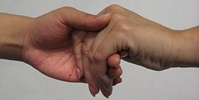|
|
 Acne (1,500) Acne (1,500)
 Addictions (1,500) Addictions (1,500)
 Advice (1,500) Advice (1,500)
 Allergies (1,092) Allergies (1,092)
 Alternative Medicine (1,500) Alternative Medicine (1,500)
 Anti Aging (1,500) Anti Aging (1,500)
 Breakup (1,500) Breakup (1,500)
 Cancer (1,499) Cancer (1,499)
 Dental Care (1,500) Dental Care (1,500)
 Disabilities (1,500) Disabilities (1,500)
 Divorce (1,500) Divorce (1,500)
 Elderly Care (1,498) Elderly Care (1,498)
 Goal Setting (1,500) Goal Setting (1,500)
 Hair Loss (1,500) Hair Loss (1,500)
 Health and Safety (1,497) Health and Safety (1,497)
 Hearing (1,500) Hearing (1,500)
 Law of Attraction (1,499) Law of Attraction (1,499)
 Marriage (1,500) Marriage (1,500)
 Medicine (1,497) Medicine (1,497)
 Meditation (1,499) Meditation (1,499)
 Men's Health (1,500) Men's Health (1,500)
 Mental Health (1,500) Mental Health (1,500)
 Motivational (1,500) Motivational (1,500)
 Nutrition (1,495) Nutrition (1,495)
 Personal Injury (1,499) Personal Injury (1,499)
 Plastic Surgeries (1,500) Plastic Surgeries (1,500)
 Pregnancy (1,496) Pregnancy (1,496)
 Psychology (1,500) Psychology (1,500)
 Public Speaking (1,500) Public Speaking (1,500)
 Quit Smoking (1,500) Quit Smoking (1,500)
 Religion (1,499) Religion (1,499)
 Self Help (1,500) Self Help (1,500)
 Skin Care (1,500) Skin Care (1,500)
 Sleep (1,500) Sleep (1,500)
 Stress Management (1,500) Stress Management (1,500)
 Teenagers (1,492) Teenagers (1,492)
 Time Management (1,500) Time Management (1,500)
 Weddings (1,500) Weddings (1,500)
 Wellness (1,500) Wellness (1,500)
 Women's Health (1,500) Women's Health (1,500)
 Women's Issues (1,500) Women's Issues (1,500)
|
Is it OK to drink caffeine during your pregnancy? This is a common question when women begin to consider pregnancy and especially once they find out they are pregnant. If you're taking a naturally holistic approach to pregnancy, the answer is most commonly no, it is not OK to drink caffeine while pregnant. Ultimately the choice is yours so, be sure to research the topic well. Believe it or not,caffeine is the most widely used drug in the world and you do not need to be a doctor to know that coffee is not the best drink for you. However, I do agree with the thought that it is less harmful than most other things that people drink, like regular soda, diet sodas, juices and Gatorade-type products. The caffeine question is not a new one, as early as 1980, the FDA began publishing a warning advising pregnant women to restrict or eliminate their intake of caffeine because of its ability to cause birth defects. The prevailing advice ondrinking caffeine during pregnancy is to do so in moderation – this being less than 300mg [two, eight ounce cups of brewed coffee]. New studies show no conclusive harm with intakes less than that. The March of Dimes and other like organizations say no more than 200mg per day. Due to the fact that so many scientific studies are showing new and different results each year, I tend to be immovable in my personal view on caffeine and pregnancy. If your doctor gave you two glasses of poison, one large glass and one small, and said pick one which would you choose? Neither! How does caffeine affect you and your baby? Yes, some people are more sensitive to the effects of caffeine than others and exactly how caffeine will affect an individual, and for how long, depends on many factors, including the amount of caffeine ingested, one's height, weight and gender, age, and whether one is pregnant or smokes. Keep in mind caffeine is readily absorbed by the body and carried around in the bloodstream, where its level peaks about one hour after consumption. [And yes it does cross into the placenta and into your baby] - Caffeine stimulates the nervous and cardiovascular systems.
- It affects the brain and results in elevated mood, decreased fatigue, and increased attentiveness.
- It increases the heart rate, blood flow/pressure, respiratory rate, and metabolic rate for several hours.
- It decreases the amount of calcium in your body.
- It dehydrates you by making you urinate more.
- AND the same things occur for your baby.
- (Except baby will steal from your bones to get needed calcium)
- It interferes with normal fetal growth by causing lower birth weight.
- It weakens adrenal glands affecting blood sugar regulation and stress coping abilities.
- And most frightening, it can increase your change of miscarriage.
It is best toavoid or at least reduce your caffeine intake. The amount the experts say is acceptable ranges from no more than 150mg per day to no more than 300mg per day. You may be able to handle the caffeine, but remember your baby's liver is immature and not able to get rid of it like you can. Imagine if that 1 cup [200mg] of morning coffee lasted you 12 – 15 hours, half the effects of caffeine can last 30 to 210 hours in infants up to 6 months of age! Common caffeine sources - Coffee (100-200mg per 8 ounce)
- Espresso (502mg per 8 ounce)
- Tea (black 60mg, green 40mg)
- Soda (40-100mg per can)
- Dark Chocolate (5-35mg per 1 ounce)
- Milk Chocolate (3-15mg per 1 ounce)
- Headache medicine (65-130mg)
If you are acaffeine user, because some studies show increases in miscarriages with more than 300mg per day, I would recommend reducing to less than 300mg per day. Then gradually reducing to as close to zero as possible, which will not only benefit your baby, but also your ability to handle stress. Having a holistic approach to pregnancy will give you the confidence that you are eating the right foods to give you and your baby the nutrients you need to stay in top physical condition and have a healthy 9 months growing together. It will also allow you to loose your pregnancy weight much faster than you can imagine. There's so much more you need to know so, follow this link: and don't wait another second to start living a life of optimal health and wellness for both you and your baby.
|
|
|



